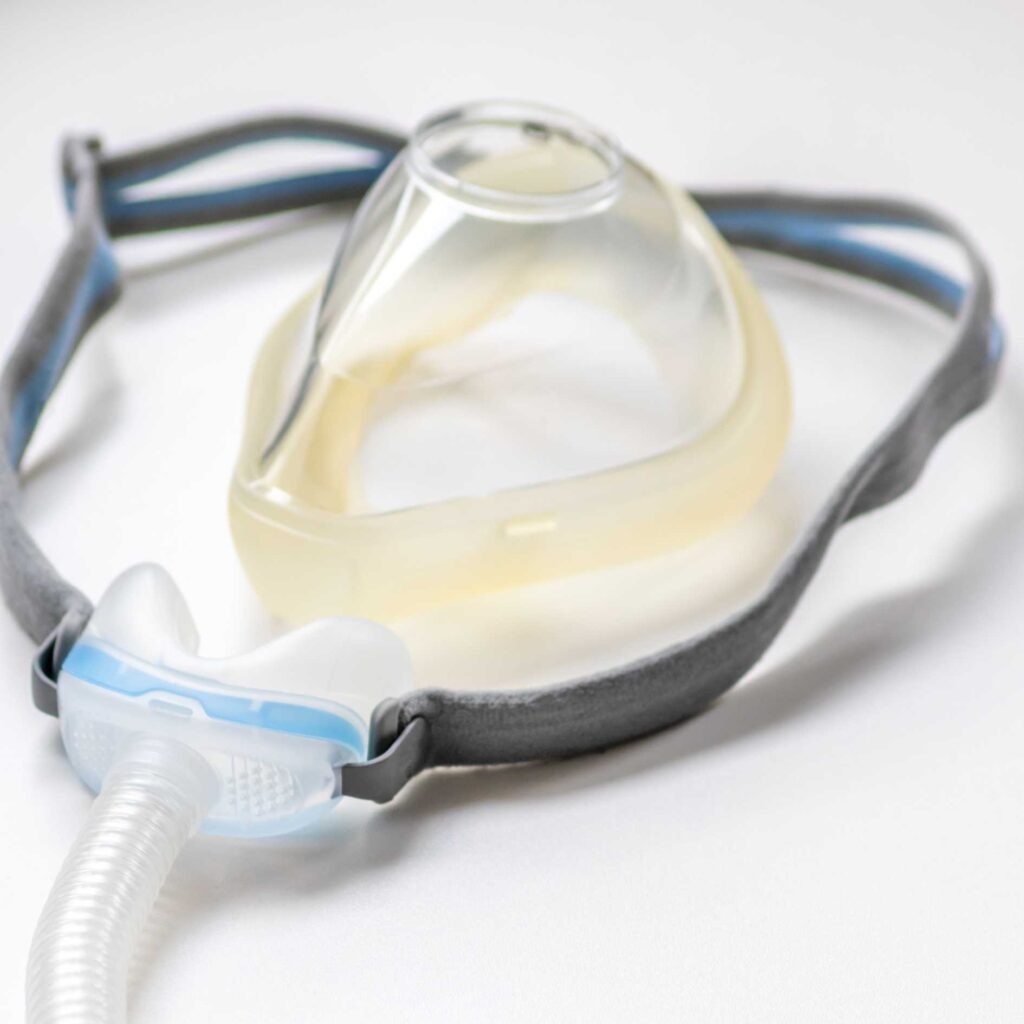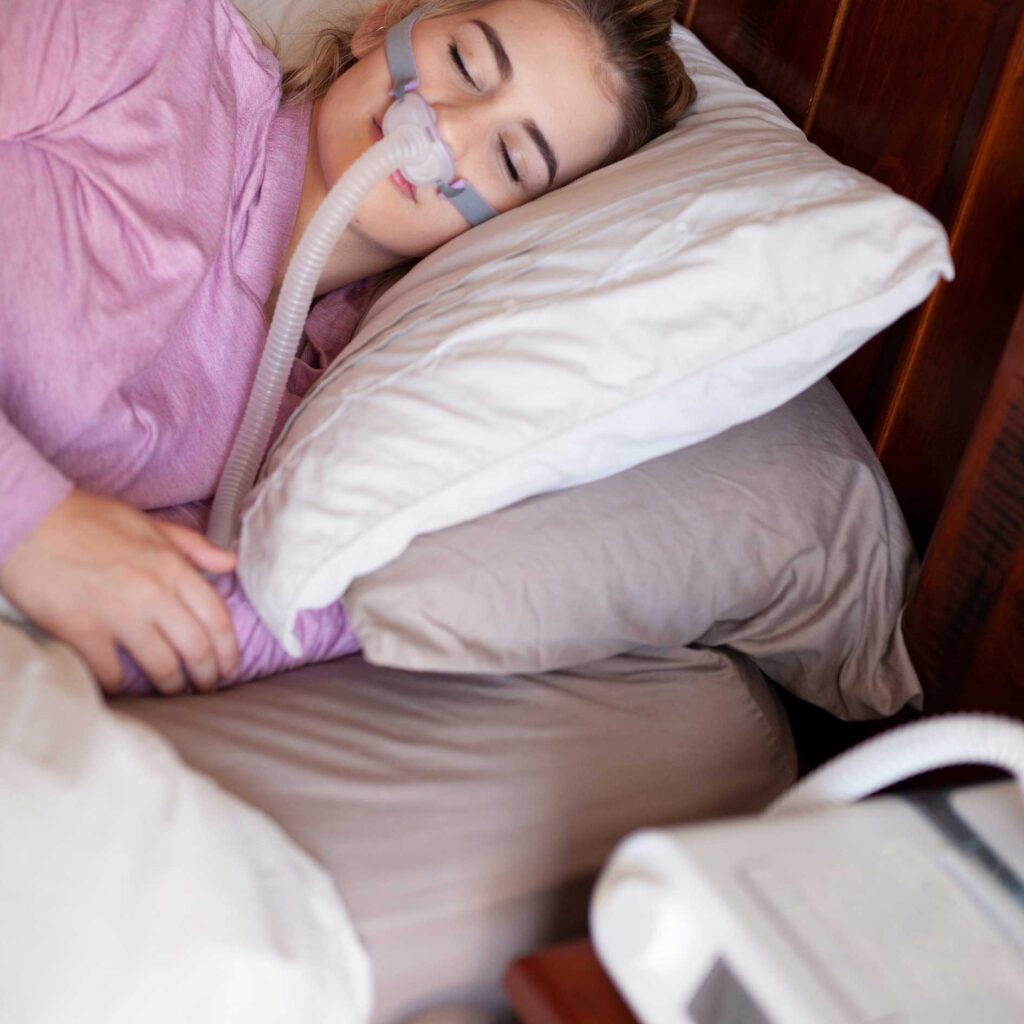If you’ve been tossing and turning at night, waking up feeling groggy, or constantly battling fatigue during the day, you’re not alone. Millions of people around the world suffer from sleep disorders — and one of the most common culprits is sleep apnea.
Fortunately, modern medicine offers a solution that can quite literally change lives: CPAP therapy. Let’s explore how this innovative treatment helps restore healthy sleep, boosts daytime energy, and improves overall well-being.
Understanding Sleep Apnea and Its Impact on Sleep
Sleep apnea is a serious condition where breathing repeatedly stops and starts during sleep. These interruptions can last several seconds — even minutes — depriving your body of oxygen and forcing your brain to wake you up just enough to resume breathing.
This constant cycle of waking prevents you from reaching deep, restorative sleep stages, leaving you exhausted even after a full night in bed.
Common Sleep Apnea Symptoms
- Loud, chronic snoring
- Gasping or choking during sleep
- Morning headaches or sore throat
- Daytime sleepiness or difficulty concentrating
- Mood swings or irritability
Left untreated, sleep apnea can lead to severe complications, including heart disease, high blood pressure, and stroke. That’s why early diagnosis through a sleep study is essential.
The Role of Sleep Studies in Diagnosis
A sleep study (also known as a polysomnography) is a non-invasive test that monitors your sleep patterns, breathing, heart rate, and oxygen levels overnight.
Sleep specialists use this data to determine if you have obstructive sleep apnea or another sleep disorder. Based on the results, they may recommend CPAP therapy as an effective treatment.
What Is CPAP Therapy and How Does It Work?
CPAP stands for Continuous Positive Airway Pressure. It’s a simple yet revolutionary device that uses mild air pressure to keep your airway open while you sleep.
A CPAP machine delivers a steady stream of air through a mask, preventing your throat from collapsing and ensuring uninterrupted breathing throughout the night.
How CPAP Improves Sleep Health
- Restores oxygen flow: Keeps your blood oxygen levels stable all night.
- Eliminates snoring: Reduces or stops snoring completely.
- Prevents interruptions: Allows you to reach deep, restorative sleep stages.
- Boosts daytime energy: With better sleep, you feel more alert and refreshed.
Many users report waking up with renewed energy and mental clarity after just a few nights of consistent CPAP use.
Real-Life Transformation: The Power of CPAP Therapy
Take John, for example — a 50-year-old who spent years feeling tired, sluggish, and irritable. His loud snoring kept his wife awake, and his doctor warned of rising blood pressure. After a sleep study, John was diagnosed with moderate obstructive sleep apnea.
Within two weeks of starting CPAP therapy, his snoring stopped, his blood pressure improved, and he woke up feeling truly rested for the first time in years. Stories like John’s highlight why CPAP therapy is considered one of the most effective sleep apnea treatments available today.
Making CPAP Therapy Comfortable for Beginners
Starting CPAP therapy can feel strange at first — wearing a mask while you sleep takes some getting used to. But with the right adjustments and mindset, it can become second nature.

Tips for CPAP Comfort
- Choose the right mask: Try different styles — nasal, full-face, or nasal pillow — to find one that fits comfortably.
- Use the ramp feature: This lets the machine start with low pressure and gradually increase as you fall asleep.
- Add humidification: A heated humidifier prevents dryness and irritation in your nose and throat.
- Keep it clean: Wash your mask, tubing, and water chamber regularly to avoid bacteria buildup.
- Be patient: It can take a few nights to adjust — but once you do, the benefits are undeniable.
Common CPAP Challenges and How to Overcome Them
Every new CPAP user experiences some initial hurdles, but most issues are easily fixable.
1. Mask Fit Problems
If your mask leaks air or feels uncomfortable, try adjusting the straps or switching to a different design. A proper fit ensures comfort and efficiency.
2. Dryness or Nasal Congestion
Use a humidifier or nasal moisturizer to reduce dryness. Some CPAP machines have built-in heated tubing for added comfort.
3. Air Pressure Discomfort
Enable the ramp feature to start with lower pressure. If the sensation persists, talk to your sleep specialist about adjusting the settings.
4. Noise Concerns
Modern CPAP machines are whisper-quiet. Placing the device on a soft mat or under your nightstand can further minimize noise.
Remember — the key is persistence. Once you find your comfort zone, CPAP therapy becomes a natural part of your bedtime routine.
Why Consistency Is the Secret to CPAP Success
Using your CPAP machine every night is crucial for achieving long-term results. Skipping therapy, even occasionally, allows sleep apnea symptoms to return almost immediately.
Benefits of Consistent CPAP Use
- Improved oxygen flow and cardiovascular health
- Better memory, focus, and mood
- Lower blood pressure and reduced heart strain
- Restored energy and vitality
Think of CPAP therapy as an investment in your future health — one that pays dividends in energy, longevity, and peace of mind.
Beyond Better Sleep: CPAP’s Health Benefits
Regular CPAP use does more than just stop snoring — it can transform your overall health. Studies in sleep medicine show that CPAP therapy:
- Reduces risk of heart disease and sleep apnea complications
- Improves insulin sensitivity in people with diabetes
- Enhances cognitive performance and emotional stability
- Promotes longer, more restorative sleep cycles
By ensuring steady oxygen supply, CPAP helps your body repair and rejuvenate itself every night — the foundation of healthy sleep.
The Emotional and Lifestyle Impact of Better Sleep
Good sleep is the cornerstone of a happy, productive life. With CPAP therapy, people often report:
- Renewed motivation and focus
- Improved relationships due to better mood and reduced irritability
- Confidence to travel, exercise, and live fully again
When you sleep well, you don’t just feel better — you become better in every aspect of your life.
Final Thoughts: Take Back Your Nights with CPAP Therapy
If you’re struggling with sleep disorders or suspect sleep apnea, don’t let it control your life any longer. CPAP therapy offers a simple, science-backed way to restore restful nights, steady breathing, and vibrant days.
With the right mindset, comfort adjustments, and consistent use, you’ll soon say goodbye to sleepless nights — and hello to a healthier, more energized you.
FAQS
Most people adapt to CPAP therapy within a few weeks. Consistent nightly use, proper mask fitting, and gradual adjustments help you get comfortable faster. Soon, you’ll experience better energy, focus, and more refreshing sleep.
Try different mask styles or sizes until you find a comfortable fit. Adjust straps gently, use mask liners, or invest in a CPAP pillow to reduce pressure points and improve comfort.
Establish a bedtime routine, track your sleep data, and celebrate small improvements. Focusing on the benefits — more energy, clearer thinking, and a healthier heart — can help keep you motivated.
Yes. By preventing breathing pauses during sleep, CPAP ensures better oxygenation and deeper rest. Users often notice higher alertness, improved mood, and reduced fatigue during the day.

